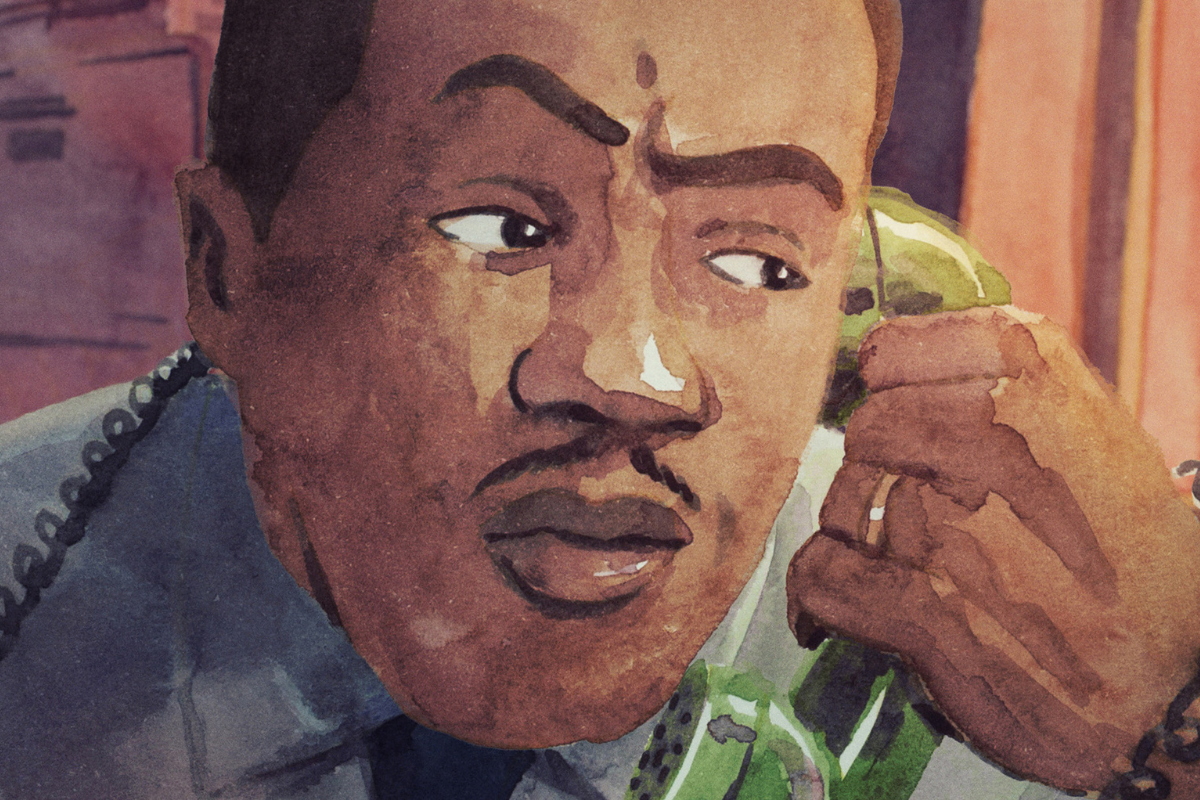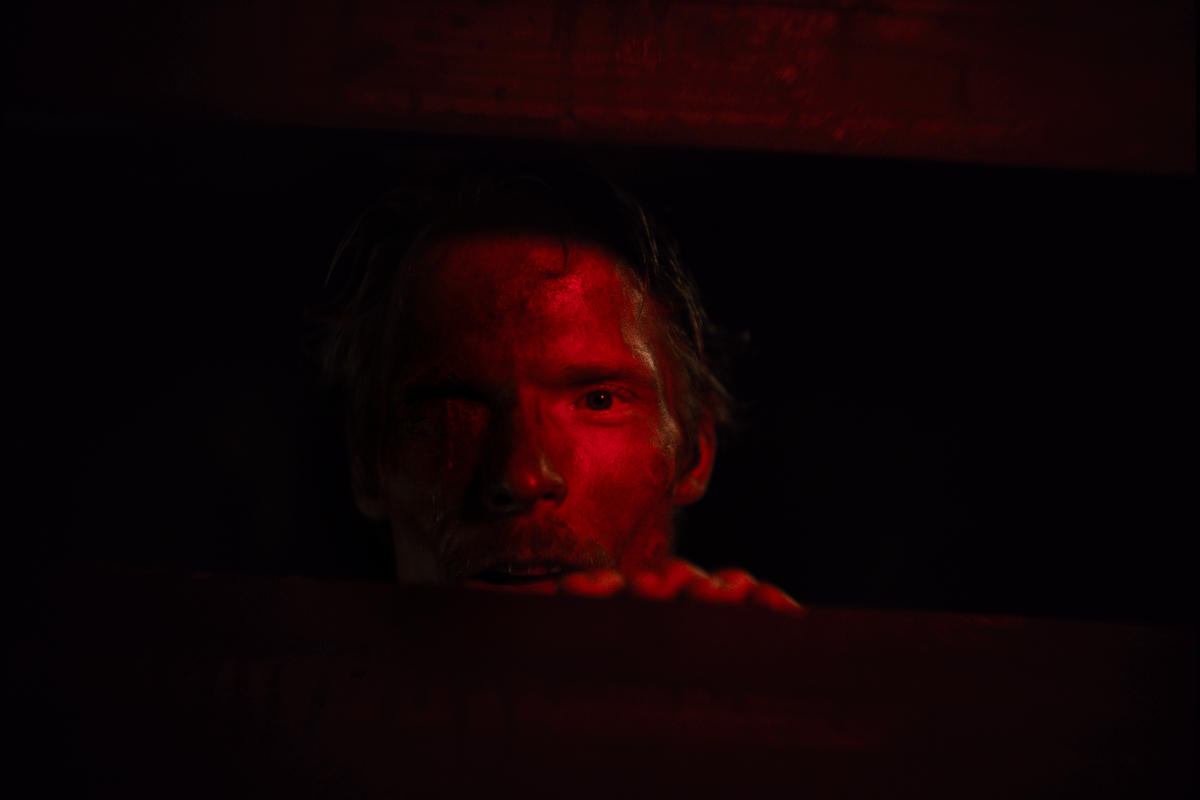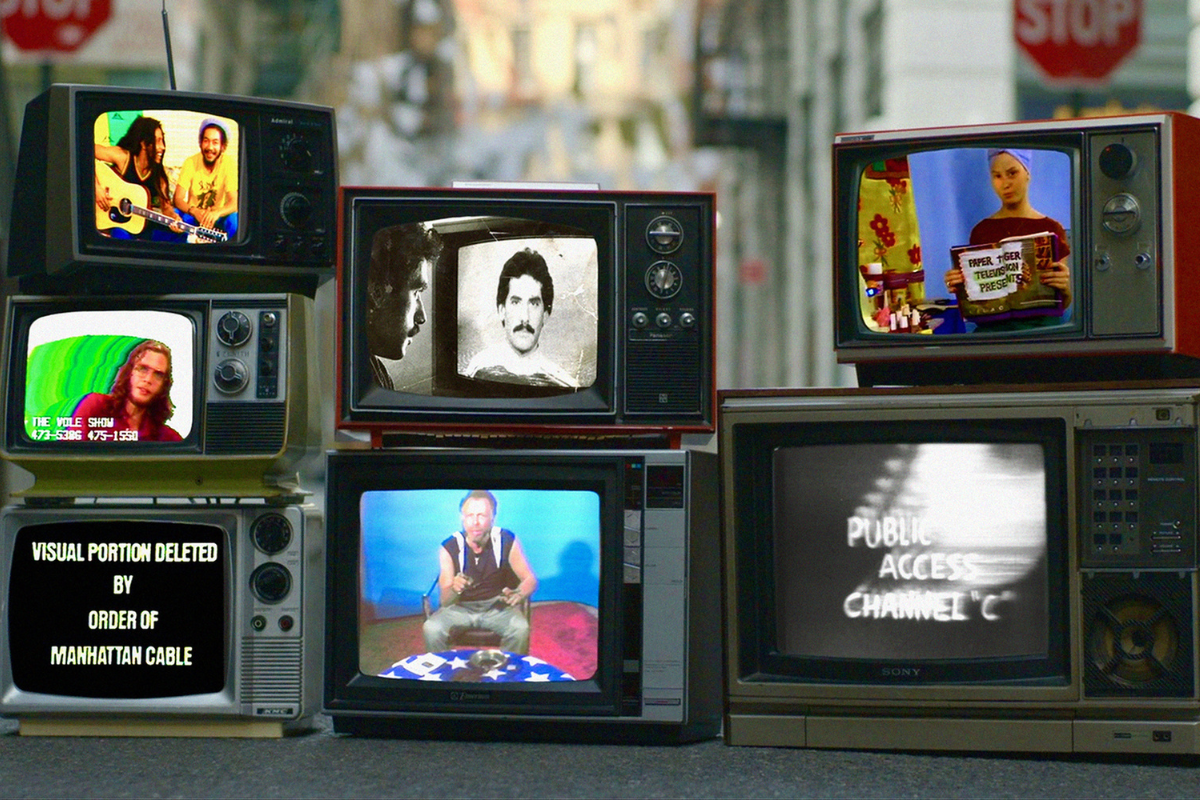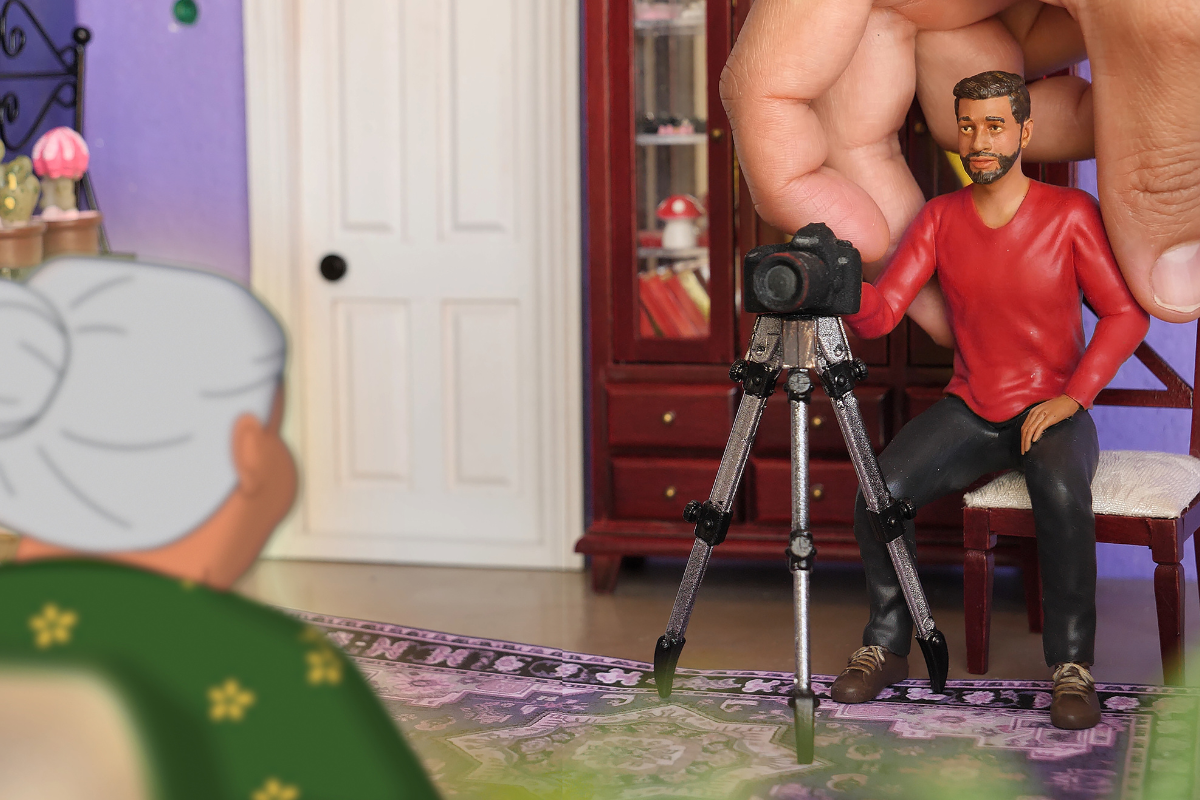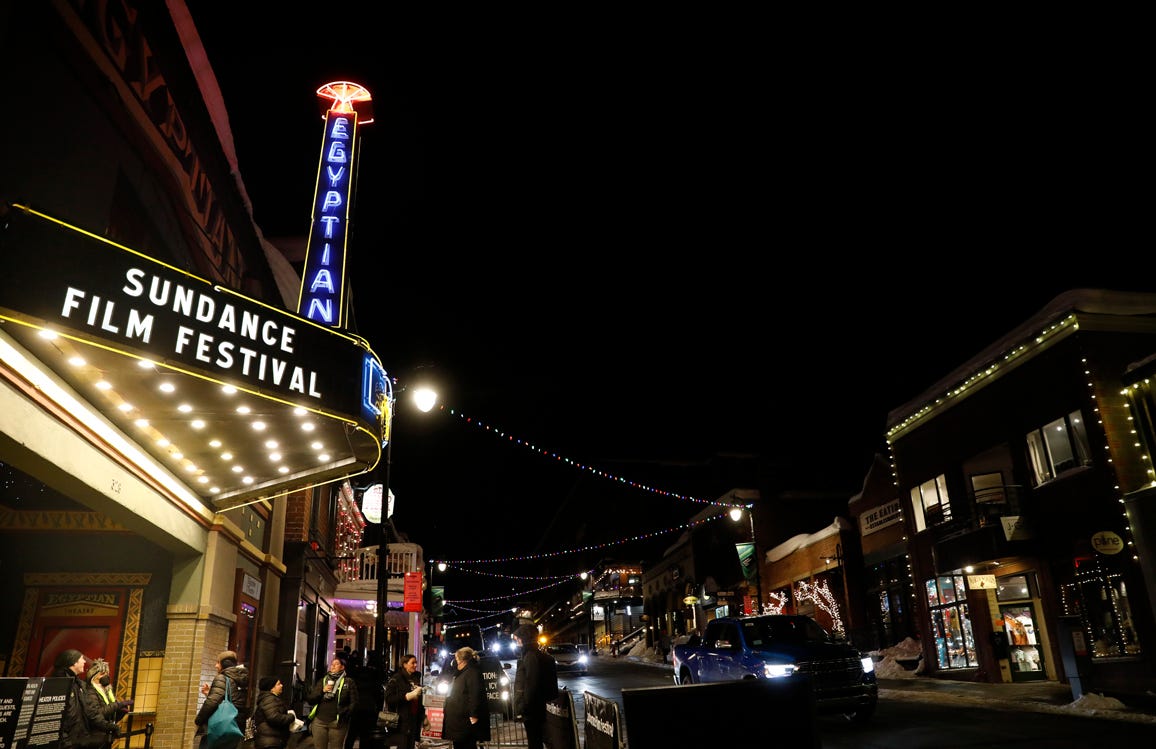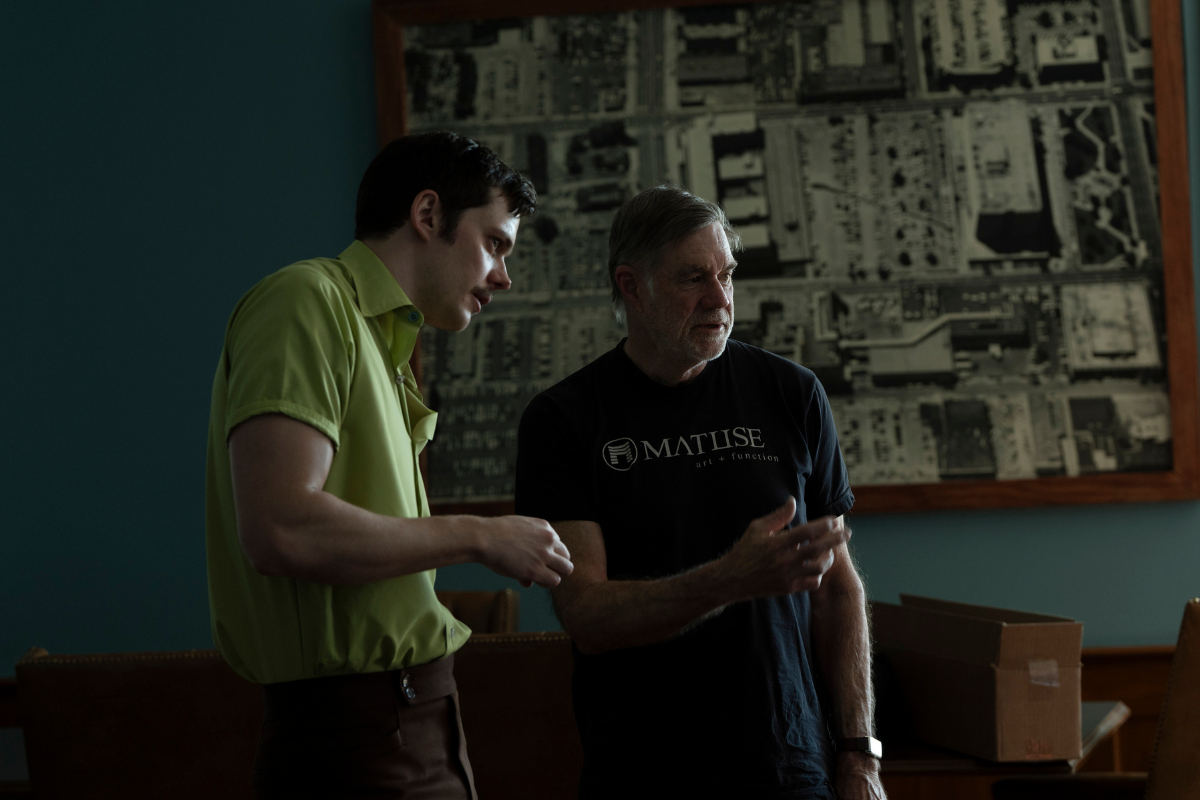How Michael Tennant Took His Shot with Indie Film ‘Pretty Problems’ and How it Paid Off in Dividends
Michael Tennant returns to Script to talk about creative life post-festival run, the importance of the guerilla marketing mentality, working with a sales agent, and above everything else, being creative collaborators with people that support you and complement your strengths.
In March 2022, I didn't know I'd be speaking with the soon-to-be SXSW Film Festival Audience Award winners, who took the festival by storm with their pink heels and incredibly earnest comedy about relationships. But, then again, I'm not surprised. And definitely not surprised how their indie darling swept numerous other film festivals, was picked up by IFC for theatrical distribution, to locking in a streaming deal with Hulu. Which by the way, begins streaming exclusively on Hulu on July 13, 2023.
In a full circle, roundabout way, having published the films curtain raiser in March, co-screenwriter and co-star Michael Tennant returns to Script to talk about creative life post-festival run, the importance of the guerilla marketing mentality, working with a sales agent, and above everything else, being creative collaborators with people that support you and that you love.
This interview has been edited for content and clarity.
Michael Tennant: This whole thing outgrew what I thought it would do. And it's opened up some really fun opportunities for the next couple of years and just riding the wave while it's available. Because you know, in this world, you're a writer, you know, the work happens when it happens. And you got to take it when it happens.
Sadie Dean: Are you looking to write more and maybe move into the directing space too?
Michael: Both. We were fortunate to go to the Maui Film Festival last year, and we had a really nice run there. IFC picked us up at a South by and they kind of became business mom and dad. And they told us they didn't want us to go to that one. They didn't want too many people to see the movie. We got into Maui though. And we're like, ‘We're going to that film festival. You can't stop us!’ But the film did great, it won the Audience Award there as well. And the film commissioner there and I have become really dear friends. And I'm writing two movies right now that I'm going to co-direct and direct next year out there.
Sadie: That's amazing!
Michael: Yeah. Thank you, thank you. By the way, you were the first publication that we spoke to before South By last year. It feels very full circle to be speaking to you and now we’re on Hulu. I had never written anything before, except for scenes for somebody in acting class. And this was such a leap of faith and to see the way people responded to it ad what it's done has been really, really awesome.
Sadie: Yeah. Well, I'm not surprised having met all of you in person at South by a year ago, which feels like 30 years ago. It’s always great when creative forces that come together like that.
Michael: Absolutely. Britt [Rentschler] and I are working on this first one together again, and we're going to co-direct it and we're not gonna play love interests in this one, because we think people might be sick of that, but we're both going to act in it again - it's cool. I'm so grateful to my community of people out here and the acting studio that introduced me to all these people and how we've been able to grow and kind of nourish each other.
Sadie: Yeah, that’s great. Well, I’d love to talk about the distribution and marketing process after you've played a film festival, and in your case, won the Audience Award at SXSW. And how much preparation were you guys doing behind the scenes to get to this point, from marketing at the film festival, in which you guys blanketed the SXSW festival in pink heels?
Michael: Thank you for all that. It just makes me smile. Anytime I get to hear that again, I can't believe we did this. Look, I am blessed to have worked with some of the smartest people in my life on this movie. Kestrin Pantera directed, Britt Rentschler, who starred in and is one of my dearest friends are two of the most organized human beings on the planet. They are such phenomenal go-getters. I think also it's just been an industry that, for most of its time has been dominated by men. These are two women who have been pushing up their entire careers. Another film I did last year, we didn't market as hard. And I watched Britt and Kestrin and Katya [Alexander], and everybody involved, they were like, ‘No, we're putting this movie in front of people.’
South by put us in the Zach Theatre, which is an almost 500-person theatre at 11 o'clock in the morning on a Monday after everybody kind of left the festival. I said this to Janet, who at the time was running the festival that like it kind of felt like an F-U and we took that as 'Alright, we're gonna pack this theatre. We don't care. We're gonna pack this theatre.' Kestrin came up with the idea for the heels after we did a photo shoot. And Charlotte [Ubben] kept leaving one of her pink shoes around and Kestrin was like, 'Oh my God, wait, what if...?' So, we jumped on Amazon, we bought 400 pairs of pink heels. I've got an amazing photo of Britt, her husband Alex [Klein] and I slapping QR codes onto them the night we arrived in Austin. And then we just went everywhere and put them everywhere. We would get into an Uber and pay the person 20 bucks to keep the shoe in their car for the weekend. We went to bars, we put a couple in Allens Boots, we hid two and then we asked if we could just put one on the counter there. And somebody scanned the QR code, and emailed the movie Gmail account, and asked, ‘Can I have the left one of these two please?’ [laughs]
We also, Britt and I, are just kids and we know how cool this is. And our deal was we're never going to be too cool for this. We're going to do every interview, we're going to do every radio hit, every Zoom meeting, and every podcast we can possibly get on because we're really proud of what we've accomplished. We're proud of what we've done. And I don't want to do the, 'I don't know. I don't care.' It's like no, like, I want people to see what we made because I think it's good.
I definitely had a really good cry after the Deadline review came out because it came out while we were in the theater. I was a mess at our after-party because I couldn't believe what was happening. But we just, very similar to how we made the movie, we just put our heads down, and you can throw a pandemic, wildfires at us, you can throw any obstacle on us, we're going to keep going because we believe in this thing. And that's that was our idea with marketing as well.
Sadie: You do need to care. You cared enough to make the movie, and you still have to care after it's done.
Michael: It's the old Ray Lewis quote, the football player where it's, I’ do Sunday for free. You pay me from Monday to Saturday.’ I love acting. I love being creative. And speaking to like my background in development, you just watch people that don't love it sometimes. I feel like a lot of people get into this industry, again, for the wrong reasons, which is you want to tell stories. I really want to connect with people. The nicest compliment I got about this movie, it was after the last screening we did in Austin. We sold out - we actually ended up having to give away our tickets, so we didn't watch the last screening of the movie, which is fine, we've seen it enough time, but I was out there living my indie movie fantasy of like handing tickets out to people in line that tickets - we were around the corner having a taco and this woman walks up and says, ‘Are you the guys in Pretty Problems? Like ‘Yeah, we are!’ ‘Oh my god, I loved it. I think you just saved my marriage.’ And her husband is sitting next to her and says, ‘What?’ She goes, ‘We're going to talk about it in the car.’ Like, whoa. [laughs]
But also, I do think there's something about, look it's a comedy it really is, but there's something to be said about the spoonful of sugar makes the medicine go down. And the more you can sneak in some feels, increasingly, as movie theaters are being bombarded with sequels and prequels, and by the way, I like a lot of those movies, I think it's really hard to connect with people. It's why I'm really excited about Hulu taking us on. I think more people are going to see this movie because of Hulu. And that really excites me. I'm really excited for this story.
Sadie: Can you talk about that process and what that looked like on your team’s end? And the reasoning behind IFC saying they don’t want you to do any more festival runs, which I assume is to set you guys up for success?
Michael: I never thought this movie would be in movie theaters. When I initially was writing it, my thought was, I know enough people that I can guilt trip to buy it on Amazon and Apple that I will make the budget of the movie back. Right? I will make my mother, make all her friends get it. So, when IFC bought us out of South by we're like, ‘Oh my God.’ And then when they told us they were gonna put us in 30 markets in theaters, it was shocking. They were phenomenal partners.
And I'm kind of saying in jest when I say they said we couldn't go to film festivals anymore. We met Karen Allen at the Sonoma Film Festival. Karen Allen is literally the reason Britt became an actor. And I watched Karen Allen knife through the crowd, get to Britt and say, ‘Oh my God, you are amazing.’ And then Britt starts crying and then I start crying. Karen starts crying. And she invited us to the Berkshire International Film Festival. And it was the same thing with IFC, anytime we approached them and asked, ‘Hey, we'd really like to go to this festival. They've offered to make us the closing night movie, Karen has been a humongous influence on Britt as an actor.’ IFC was like, ‘Great go for it, cool.’
They've been very collaborative. I've actually become really dear friends with a few people that work there through this process. They still invite us to all their premieres and all their screenings, and we really feel like we're part of their family. But same thing where I don't expect IFC to take a billboard out on Sunset Boulevard for this movie. I'm not expecting them to slap an ad on the side of a bus. We're a teeny movie, we understood that we were a teeny movie, they did a great job on social media.
And we're going through this again with Hulu right now of how can we help - we're lunatics. We're really into guerilla marketing, we're all massive overachievers and supertype A. We took an RV, and we wrapped a massive banner of the movie poster that they created around the RV, and we drove around LA before the screening. We went on a little bit of a tour there where we were in LA one night, and we were in San Francisco the next night, and then we were in New York the next night, and we're back in LA - it's a lot of work. It kicks your butt without a doubt. I hate to be repetitive, but it's the same way we made the movie to saying yes. Whenever we were asked to do anything, we said yes. My thing is always take the shot. And if it doesn't hit, alright. Or if we over-pursue something and someone says, ‘Hey, you're doing too much’ we will step back. But I'd rather be told to take a step back than to be told you can be trying harder. I dealt with this when I was an acting coach, where it's so much easier to get an actor that's pushing to calm down than to get an actor that's not doing enough to get up, you know?
Sadie: Yeah, it's like when you overwrite on your vomit draft –you can edit, that's what the rewrite is for.
Michael: The first draft of Pretty Problems was 147 pages and the shooting draft was 130. The entire time, ‘I know not all this is going to make it into the movie’ but I would rather have it than be in the editing bay later and go, ‘Oh God. We missed that scene We don't have that connective tissue.’
Sadie: And then taking these shots - you don't know what's going to happen unless you do it or having that regret of, ‘I had that opportunity. And I missed it.’
Michael: Yeah, again, it's not like, ‘Oh, I wasn't trying that hard.’ The idea of I wasn't trying that hard, being kind of a defense mechanism of if I don't try hard, that it's OK if I don't succeed. It's that fear of success. The idea of what if I give my all to this thing, and it fails? What does that say about me? We go through this and professionally, we go through this in personal relationships. And I would rather be wholehearted, and I would rather try, and I would rather be incredibly vulnerable, and be told, ‘Yo, calm down.’ I think it's part of the reason I didn't really work in the more suit and tie part of the business. I think I led with a lot of vulnerability. I think I led with a lot of honesty, and I think sometimes that didn't work with people.
Sadie: So, in terms of getting Hulu on board, how what was that process like? Do they work directly with IFC?
Michael: Actually, they went through IFC, but Hulu, which again, this is where I always hope the movie would live, they have an amazing treasure trove of indie movies. I just always hoped it would be Hulu. We got word after South by, shout out to Alex Brunner, our sales agent came back and basically told us who was bidding on the movie, and I asked about specifically Hulu and Netflix thinking that this movie would never be in theaters. And he said Hulu would take it after someone gave it a theatrical run. Hulu wanted to see how it would go.
Sadie: Speaking of sales agents, where and when in the process of making the film and embarking on the film festival circulation, do you bring on a sales agent?
Michael: I have had a long-standing relationship with Alex Brunner at UTA. Kestrin used to work with Jessica Lacey. We were begging all of them to watch the movie, and we couldn't get them to watch the movie. Apart of it is that, Alex has known us for a while. And I think the thought of me writing a movie and acting in a movie was a little like, ‘OK, sure.’ We pulled him into a screening that we did at the Lonely Island offices, and then all of a sudden him and Jessica were fighting over who was gonna sell the movie. And then they sold it together, they did a phenomenal job.
But I've been dealing with this on another project right now, where I don't think people understand how important it is to have somebody in your corner who is doing this because you can make a great movie, and you can get it into festivals, and it can win awards, and nothing can happen with it. So that was pre-festival.
It definitely helped that we made Deadline’s Hot List for South by, that definitely put a spotlight on us. But I would also just tell other filmmakers, you want a sales agent that's working on commission, not a sales agent that's taking a flat fee. It's been my experience, the ones that work on commission tend to hunt a little harder, ones that are taking a flat fee from you, they have your money. And though they might be able to get you a deal, there's a couple of companies that will buy anything, and they won't pay a lot of money for it. We were fortunate to have a little bit of a bidding war and then winning the Audience Award definitely helped at South by.
Sadie: With your next couple of projects, do you have the sales agent in place or are you going to be hitting film markets?
Michael: Not yet. I think the goal for my next project, the one after this one is to do that. With this one, I still am doing it in-house. I've got independent investors who have probably watched Pretty Problems more than my mother, which is wild to me, who are helping fund this next movie, which I'm very grateful and appreciative for. Again, feeling like someone believes in you enough to put their own money into it, especially in a business where my fear with indie film is that it's going to become the opera. And it's not going to work without benefactors. It's not gonna work without angel investors. Maybe that happens, maybe it doesn't, I don't know, but my hope in the next one is to do that.
Also, we're gonna be working with a lot of the same actors from Pretty Problems. And while I think those are the most talented people on the planet, a lot of people don't know who those people are yet. I'm hoping that this Hulu release will maybe open some people up to the project a little bit more. But kind of doing this a little in the way we did Pretty Problems with just like, I'm not going to shocked we're making sandwiches one day, because we couldn't afford crafty.
Sadie: Any general advice for filmmakers who are looking to dive in on their first passion project, whether they intend to direct themselves or maybe even star in as a vehicle for themselves?
Michael: I can't believe I'm answering this question. I feel like Mark Duplass right now, this is wild. [laughs] No, but I do think that's it, it is you kind of start to say fuck it. This is an industry that will tell you no every single day. This is an industry that is not supportive of you. This is an industry that tells you to do things the way it's been done. And that doesn't work. It's not a linear career. You don't go to undergrad, and then grad school, and then this. That's not how this industry works. And we all just keep waiting for somebody to hand us this.
I did this with Pretty Problems that had all this success, and I was like, ‘Here we go with the acting roles! Where's the writing jobs?’ It's like, ‘Nope. Nobody? Nobody? Cool.’ What I did get out of it, though, was one I learned go to every film festival you can. These are the people that love movies. These are the people that will support your movies. These are the people that will help you get your next movie made. You'll meet other creatives at this place. And don't be a dick. Be excited to be there. It's awesome to go SXSW. It's awesome. I was just back there. They invited Britt and I back, and Kestrin as well, kind as an emeritus, and that was cool. The plane landed in Austin and I was like, ‘Oh my God, the relief I'm feeling about not having to promote this movie, I'm not gonna go hanging heels everywhere, worried about is somebody going to like my movie.’ And then I got my bag, and I went, ‘I have so much fucking FOMO that I don't have a project here.’ Versus when you go to something like the Sonoma International Film Festival or you go to the Maui Film Festival or you go to the Berkshire International Festival, they're not as bright lights, big cameras, like Ethan Hawke isn't around the corner, Diplo is not doing a set tonight at some bar. We made so many friends, like dear friends at these festivals and people that really love this movie.
And finally, I would just say understand what your strengths are and know what your weaknesses are. I'm a really emotional person, I can be really sensitive. I push myself too hard. Speaking of being on set, word of advice, you can never have too many onset producers. You just can't. I learned that the hard way on this movie. I think we told you the story, but after we'd do a take, Britt would go start taking lunch orders and I would start moving cars around so they wouldn't be in the background of the next shot. Instead of focusing on being the best actor I can be in the scene, which is my job on set. I'm focused on all this other stuff, right?
The other thing is just get a lot of sleep, drink a lot of water, be kind to yourself, be kind to people, and also again, don't be a dick. There's so many assholes in this industry. And it's just a lot more fun to work with people that are fun and to work with people that want to work with you. We talked about this the first time we spoke, I put all my friends in this movie because I knew they wouldn't let me down. I knew on the days where I felt like shit, and where I didn't want to do it, and when I didn't want to do another take or I just was like, ‘What am I doing? Why did I decide to do this? I'm wasting a month of everyone's time doing this.’ I knew they wouldn't let me sit in. I knew they'd pick me up and they'd make me go play. I understand that working with friends can be a tough thing in a lot of industries. This is an industry where if you're creating with your friends, it’s awesome. Create with people that love you and create with people that complement your strengths.
Pretty Problems will be available to stream on Hulu on July 13, 2023.


